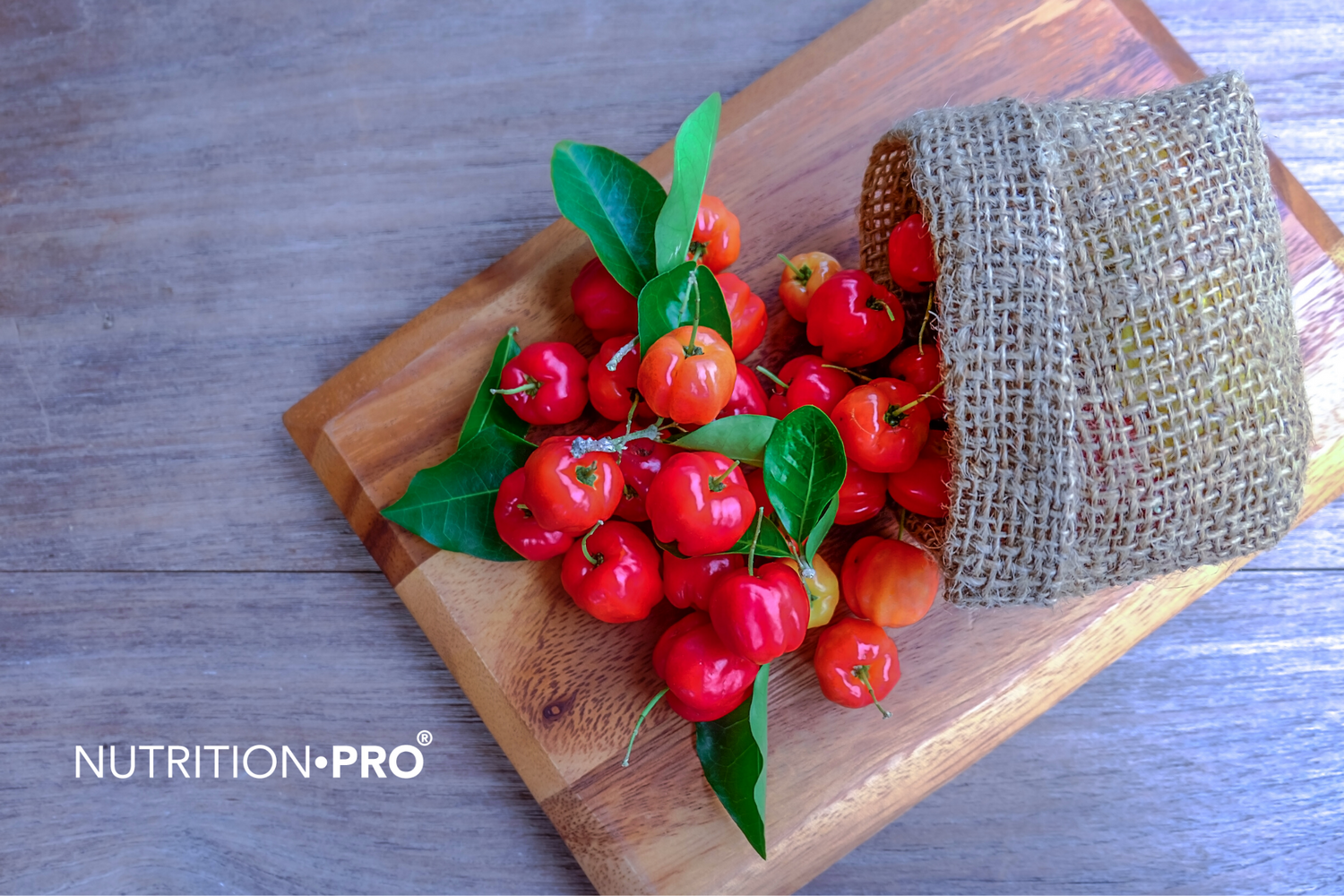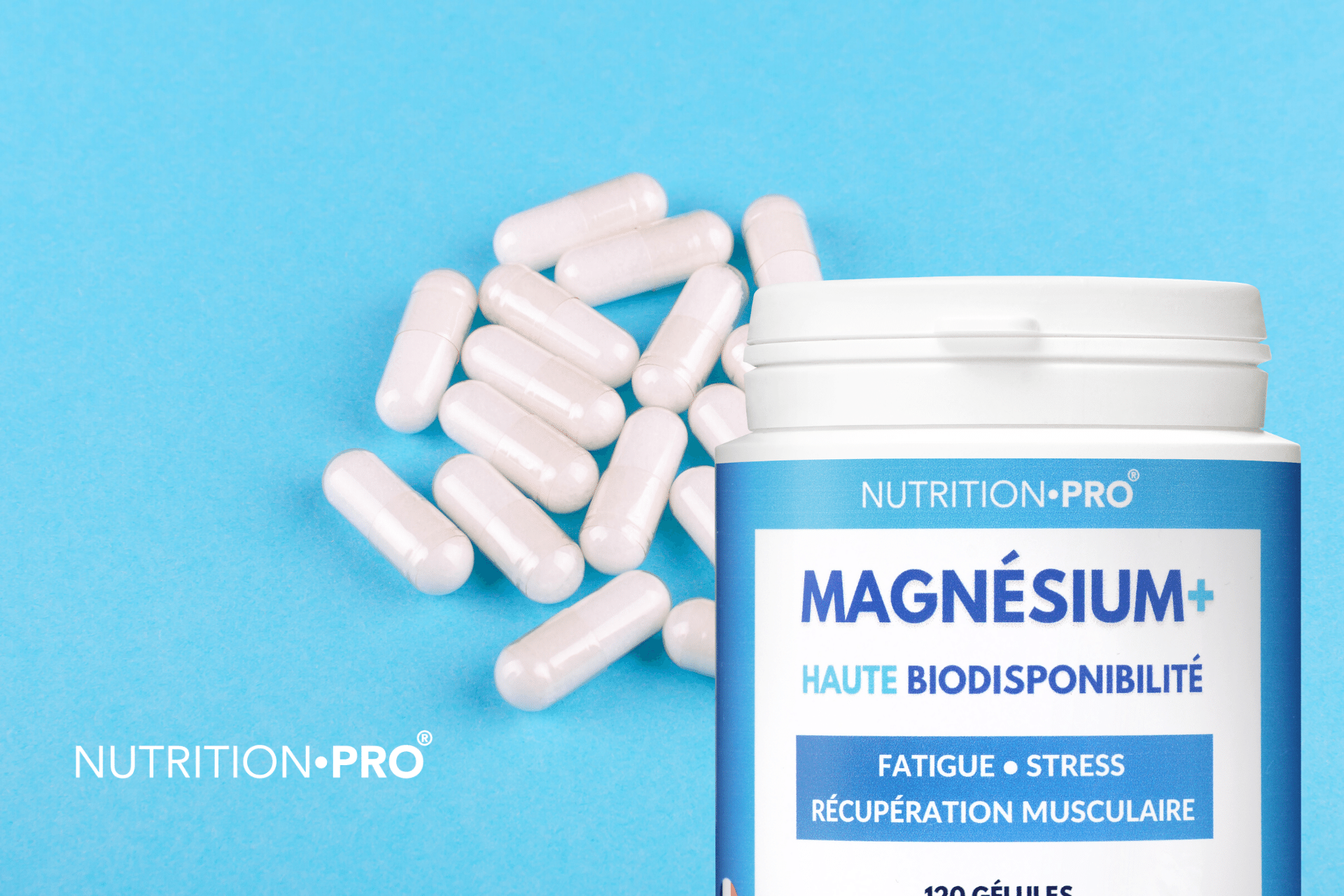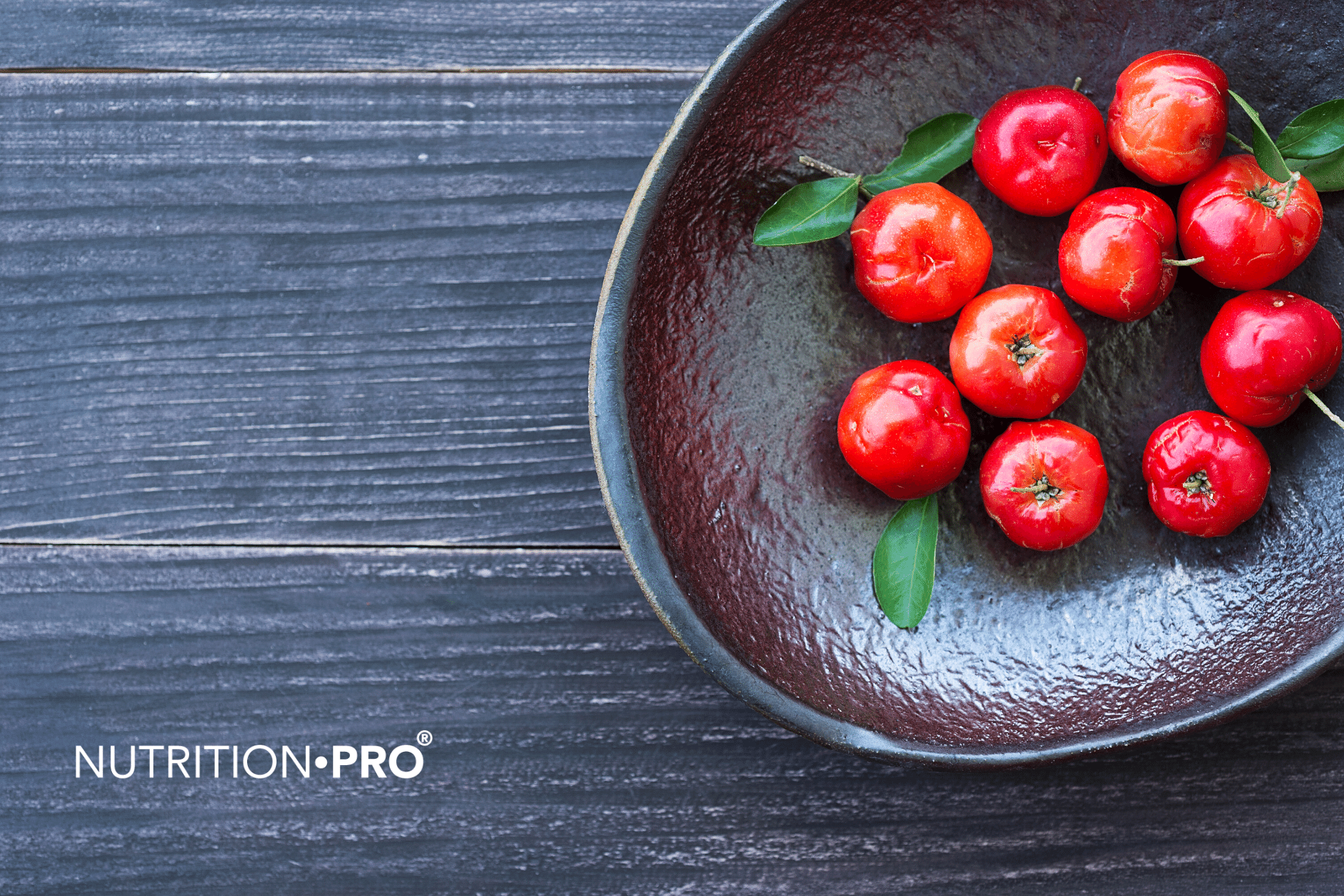What is acerola?
Acerola is a plant native to the tropical regions of the Western Hemisphere. It is also commonly called West Indian cherry, Barbados cherry or simply “ acerola ”.
Acerola produces cherry-like berries, but it is not a true cherry. These berries have a pleasant taste and have been used in modern and traditional medicine. Traditional uses include treating liver disease, diarrhea, dysentery, coughs and colds.
Recently, there has been interest in using the exceptional vitamin C content of acerola as a dietary supplement to reduce vitamin C deficiency. Which makes it one of the richest fruits in vitamin C (30 to 40 times more than an orange) but also and above all an all-natural vitamin C supplement.
There are many health and wellness claims about this supplement, but not all of them have studies to back them up.

Discover our organic acerola powder by clicking here
What are the proven benefits of acerola?
The health benefits of acerola are mainly due to its extreme richness in vitamin C to reduce deficiencies.
Of all the research on the acerola cherry, the studies that focus on vitamin C are the most thorough. This confirms its place as an all-natural vitamin C supplement.
In a study of various vitamin C-containing fruits and their relative amounts, acerola outperformed all others, especially when grown organically. Acerola contains much higher amounts of vitamin C than oranges and strawberries , and it is only surpassed by rosehips. The berry has also been found to be a very important source of vitamin A.
Vitamin C is a necessary nutrient and a water-soluble vitamin and is not stored in the body, so you must take a source of water-soluble vitamins daily. Along with vitamin A, vitamin C is a known antioxidant, helping to prevent free radical damage and certain diseases. Recent studies claim that acerola is rich in antioxidants .
Vitamin C also strengthens immune defenses, collagen, protects mucous membranes and prevents scurvy. Vitamin C is important for keeping the immune system functioning and helping the body fight infections, viruses, and even cancer.
Although more research is needed, one study has shown that in the laboratory, cherries rich in antioxidants and vitamin C have the ability to help the body stop the growth of colon cancer.
Similar to witch hazel , acerola cherry is an astringent. This could make it useful for treating skin blemishes, promoting skin elasticity, and helping digestive issues. It can even be used as an antimicrobial mouthwash.
What are the other benefits of acerola :
- Antidepressant
- Antifungal
- Increases athletic endurance
- Anti diarrhea
- Ayentery
- Stringent for the skin (cream)
What is the nutritional composition of acerola?
In addition to its high vitamin C content, acerola also contains good amounts of the following nutrients:
- Calcium
- Iron
- Niacin (vitamin B-3)
- Phosphorus
- Piboflavin (vitamin B-2)
- Phiamine (vitamin B-1)
Why consume acerola?
Acerola is best known for being extremely rich in vitamin C. For this reason, it is often used to help or prevent colds or the flu. It is also used as an antioxidant nutrient. Along with vitamin C, acerola can be taken to boost immunity .
How to consume acerola?
Consume the berry or fruit of the acerola plant for its health benefits . Its taste tends to be described as sweet, fragrant and astringent. It is easily eaten raw or cooked in dishes.
The best way to get the acerola fruit is to grow your own due to the quick perishability of the acerola cherry. You can also preserve fresh acerola cherries by freezing them as soon as you pick them.
The fruit is most commonly found in supplement form. This is because the berry decomposes within five days of harvest, losing much of its nutrition. Even juices spoil easily unless preservatives are added.
Acerola supplements include:
- Acerola powder
- Acerola in capsules
- Acerola liquid extract (tincture)
Powder supplementation is very popular. Made from dehydrated, powdered acerola cherry juice, it can be mixed into drinks, smoothies, juices, and more. You can also make smoothies from your frozen berries.
What dosage for acerola?
When it comes to dosage recommendations, there is no standard amount that has been shown to be effective. A dosage recommendation general for adults is one level teaspoon, or 3.6 grams, of powder mixed with water or another beverage. This amount can be taken about three to five times a week to increase vitamin C intake.
It is generally recommended that adults take a dose that provides no more than 2000 milligrams of vitamin C per day, as this is a safe upper limit for most people. Since the concentration of vitamin C depends on the specific product, read the dosage instructions carefully.
Conclusion
Acerola is used as a home remedy for a variety of ailments. The research supporting it as a source of vitamin C and a natural supplement is strong. Acerola also contains other important vitamins and minerals, and it is an important source of antioxidants.
Consuming it in food or supplement form can help you meet your vitamin C needs. It could also be a big help during cold and flu season.
.As for its other claimed benefits - proper functioning of the digestive system, antidepressant and increased athletic endurance















